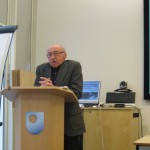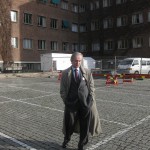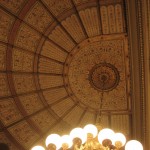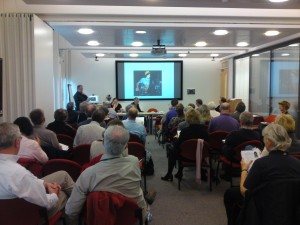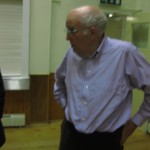Calls for papers
Tuesday, February 21st, 2012This from Bournemouth:
Thursday May 3rd 2012 ‘Addressing the Audience: European Historical Perspectives’, The Centre for Broadcasting History, Bournemouth University
Broadcasting History and Media History more generally have tended to focus on institutions and production rather than the audience. There are obviously methodological challenges in studying audiences of the past but there is nothing to stop a consideration of how audiences were imagined and spoken to, and that will be our main theme. This informal one day gathering brings together British and European scholars to exchange ideas and research. It also reflects the ‘European turn’ in media history which has been a feature of recent research projects and publications. We have invited media historians from the universities of Utrecht, Lund, Hamburg, Maastricht and Roskilde to share research and ideas. We invite papers on the history of audience address (British or European) however that is interpreted. The following key note speakers are confirmed; Patrik Lundell, University of Lund & Kate Lacey, Susex University. Contributions are welcome from academics and researchers interested in the history of broadcasting (radio and television but other media historians are welcome to join us) as well as doctoral students, archivists and curators.
ABSTRACTS: Please send abstracts of less than 250 words before 2nd April to
[email protected]<mailto:[email protected]> (Kathryn McDonald)
This from Edge Hill:
The Centre for Learner Identity Studies 4th Annual Conference, themed around ‘Identity, State, Education’ is to take place at Edge Hill University on July 11th-13th 2012. The call closes on the 28th February. See http://www.edgehill.ac.uk/clis/conferences
We are hoping that the conference will provide opportunities for a wide range of issues to be discussed, ranging from curriculum and pedagogy to policies and structures. We welcome contributions from researchers at all stages of their careers and the call is for paper, symposia and roundtable presentation abstracts. The conference aims to explore the changing role of the state in the provision of mass education from national and international perspectives and to consider the impacts on structures of educational provision, delivery and governance of a range of pressures, including, for example, marketization, neo-liberalism and globalisation.
This from Rhodes University, Grahamstown, South Africa:
Since its inception in 1998, the Higher Education Close Up (HECU) Conference has distinguished itself among conferences with a focus on higher education for its interest in research methodology, in particular qualitative approaches which afford fine-grained analysis of higher education practices. Over the five conferences themes have included: assessment, academic literacies, professional development, management and change, quality assurance and the student experience. Consistent with this focus, HECU 6 is an opportunity to reflect upon higher education research from a theoretical and methodological perspective.
Higher Education Close Up 6 Conference, 11 – 13 July 2012. The theme of the HECU6 conference is ‘Challenging Dualisms in Higher Education Research and Practice’. Research and practice in higher education abounds with dualisms, in the HECU 4 conference, for example, Paul Ashwin identified problems associated with the dualism of structure and agency, other such dualisms include quantitative/qualitative, essentialist/non-essentialist, macro/micro, academic/vocational. At this conference four dualisms are considered in the Thinkpieces of the keynote speakers:
Theory/practice
Reason/Emotion
Essentialism/Social Constructionism
Culture/Agency
Conference participants are invited to submit abstract that speak to these dualisms in the Thinkpieces. https://www.jiscmail.ac.uk/cgi-bin/webadmin?A0=HIGHER-EDUCATION-CLOSE-UP
This from Saint Andrews:
Function, form and funding: What are universities for – and who should pay for them?. An international conference hosted by the University of St Andrews, UK 29 – 31 August 2012
To mark the 600th anniversary of the foundation of St Andrews University, the School of History and the Institute of Scottish Historical Research are joining with the International Commission for the History of Universities to host an international conference on the theme of ‘Function, form and funding: What are universities for – and who should pay for them?’
The conference theme is intended to allow for an exploration of both the historic and contemporary function of university education and the extent to which its academic purposes have been, and still are, driven by broader economic, social and political issues.


